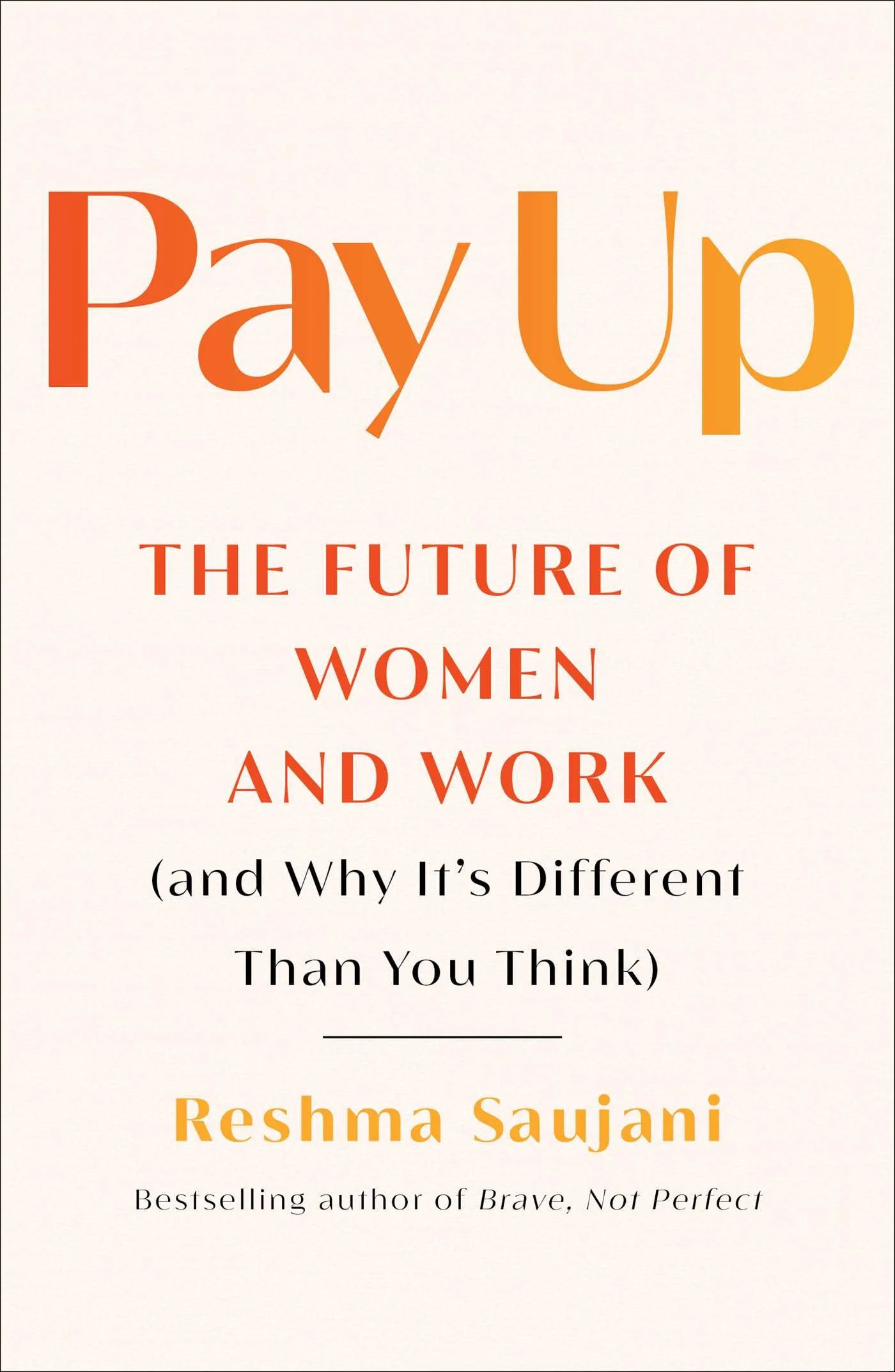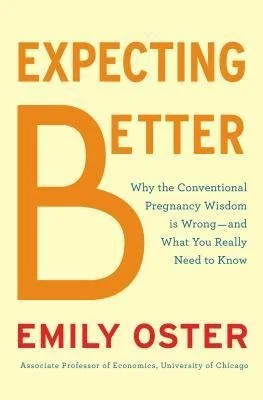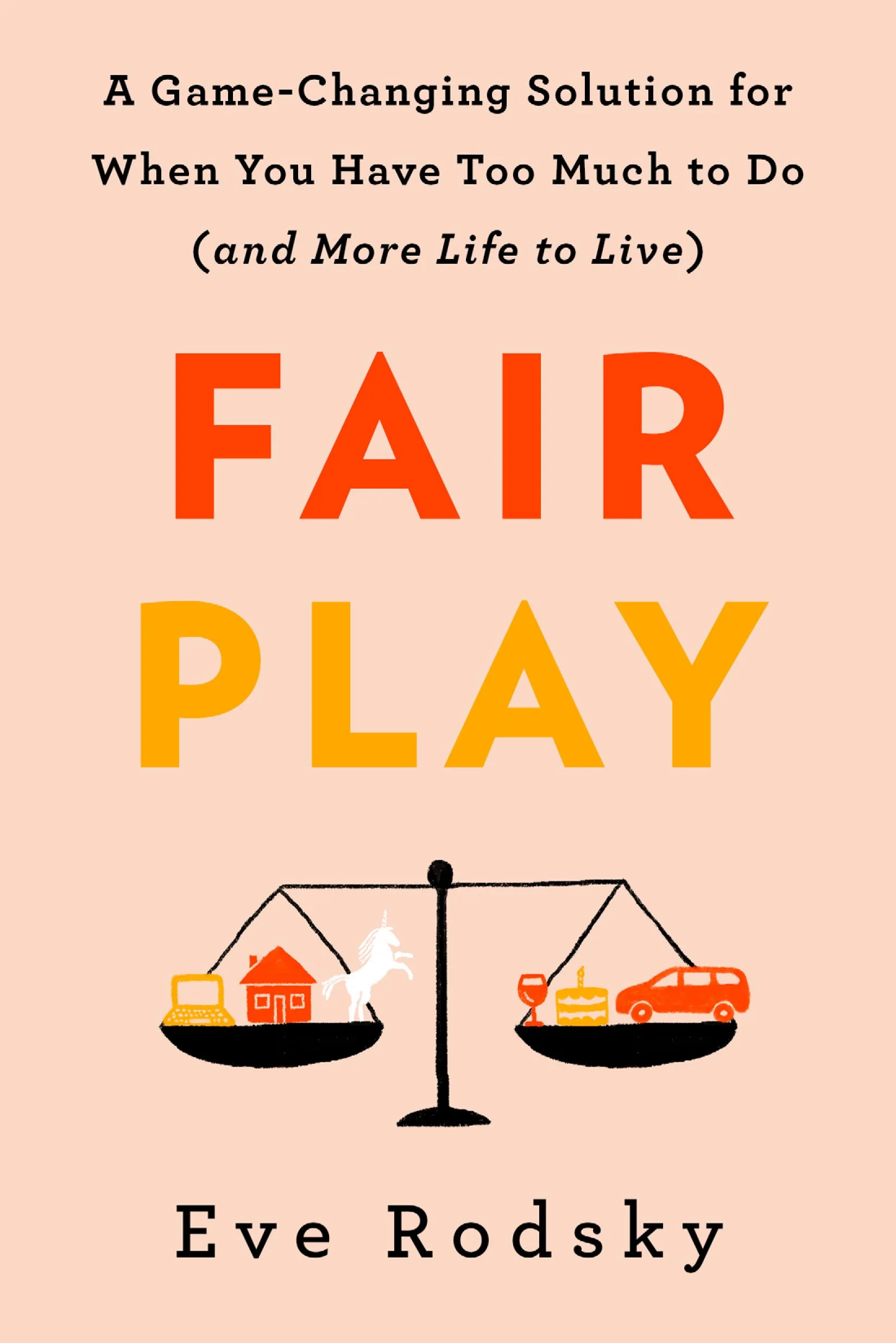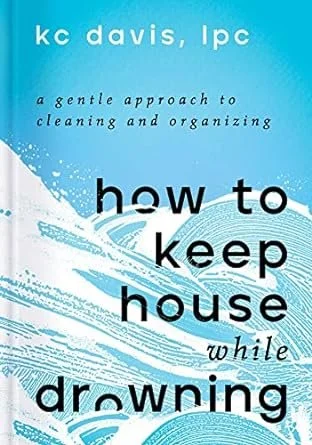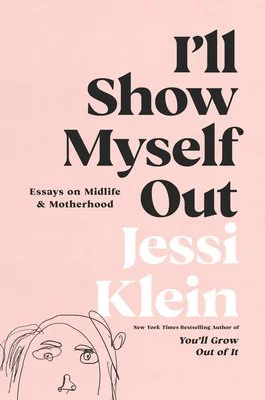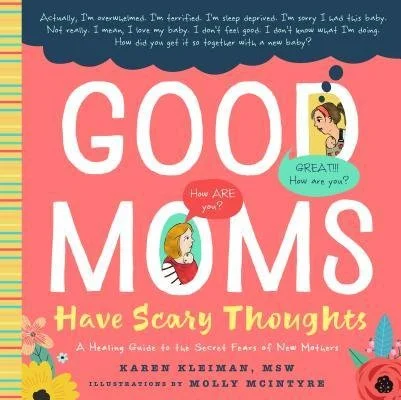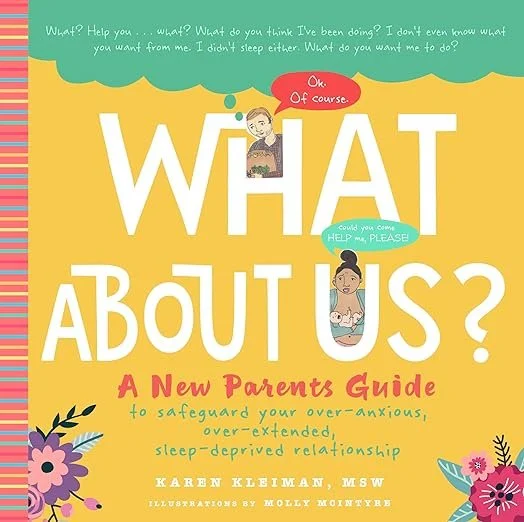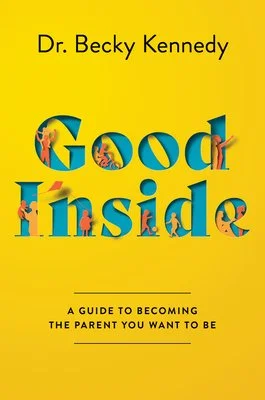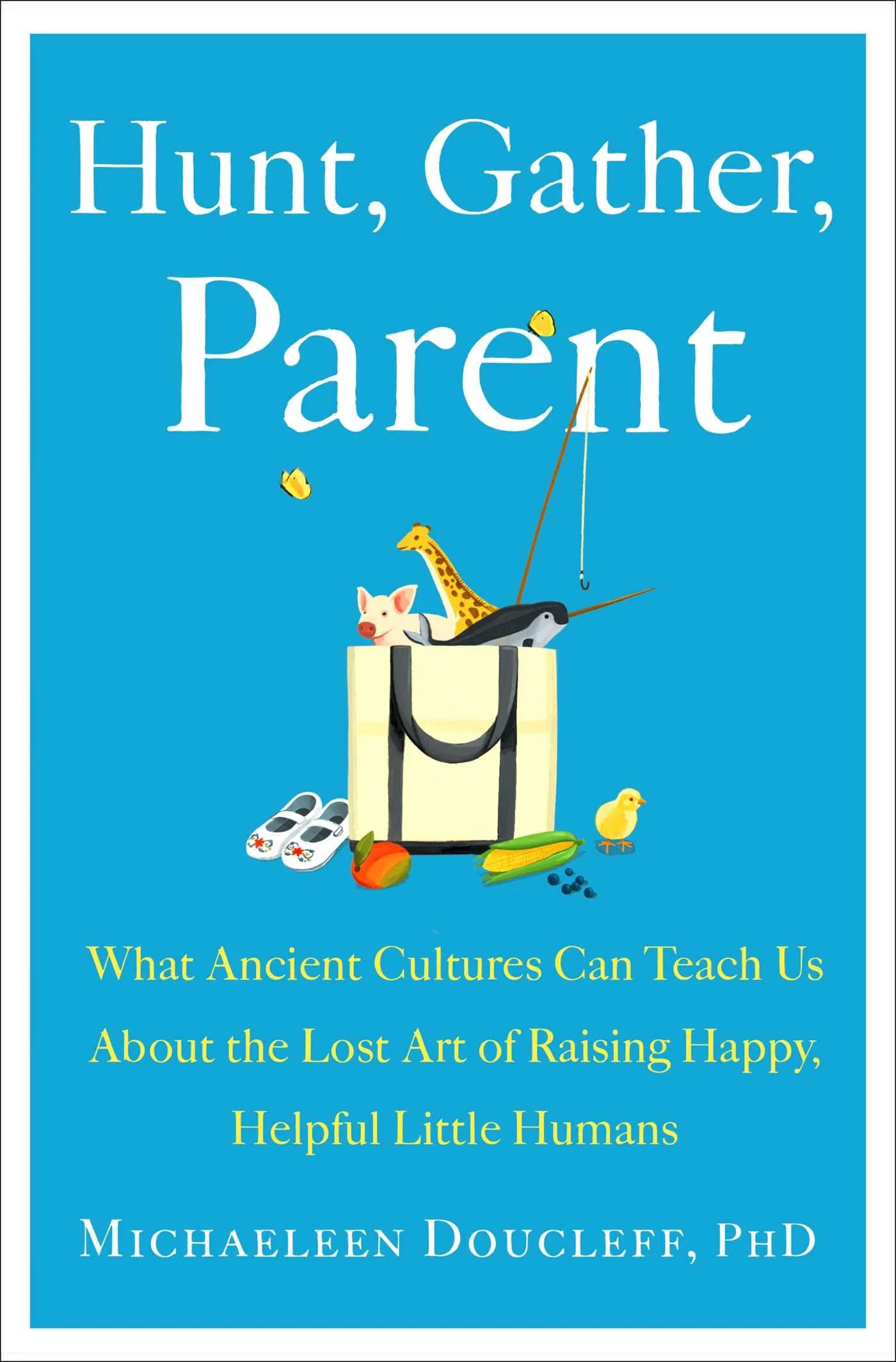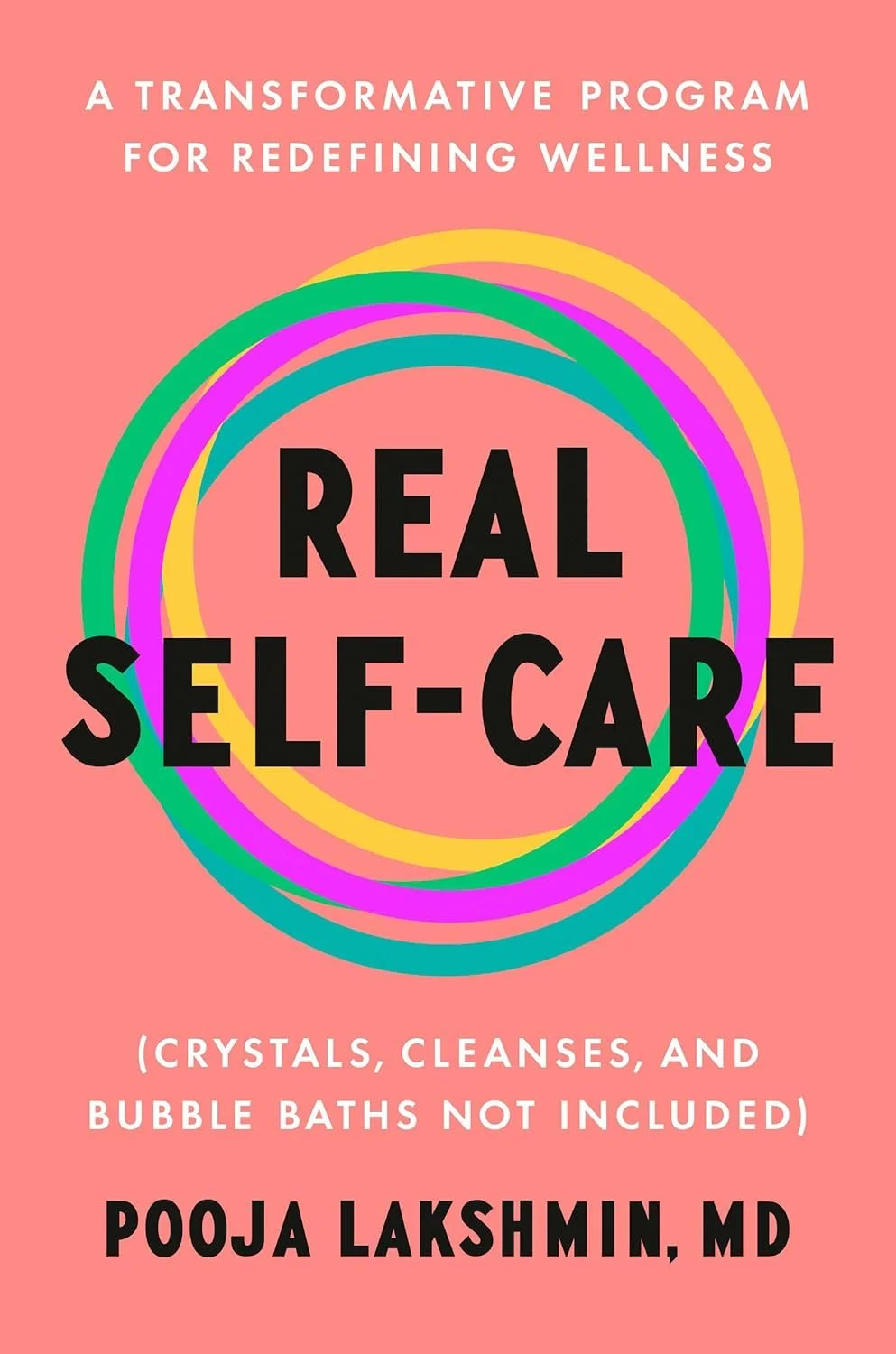Books.
There are many books that shaped my perinatal journey and helped me become the mom I wanted to be. They gave me valuable information and tools—to support my postpartum adjustment, build caregiving skills, and strengthen my relationship with my partner. Most importantly, each book helped improve my mental health and commitment to my own self-care.
You can learn more about each book below. I know it’s tough to find free time as a new mom, so each review suggests other options for gaining key insights from each book (so you don’t have to read the entire thing!).
Happy reading, mamas.
Recommended Books
12 Hours By 12 Weeks - by Suzy Giordano
Expecting Better - by Emily Oster
Fair Play - by Eve Rodsky
Good Inside - by Dr. Becky Kennedy
Good Moms Have Scary Thoughts - by Karen Kleinman
Hunt, Gather, Parent - by Michaleen Doucleff
How to Keep House While Drowning - KC Davis
I’ll Show Myself Out - by Jessi Klein
Pay Up - by Reshma Saujani
Real Self-Care - by Pooja Lakshmin
Secrets of Feeding a Healthy Family - by Ellyn Satter
What About Us? - by Karen Kleinman
Summary
SELF CARE POSTPARTUM ADJUSTMENT
Pay Up:
The Future of Women and Work (and Why It’s Different Than You Think)
by Reshma Saujani
234 pages
SELF CARE CAREGIVING
Expecting Better:
Why the Conventional Pregnancy Wisdom is Wrong And What You Really Need to Know
by Emily Oster
337 pages
SELF CARE CAREGIVING POSTPARTUM ADJUSTMENT RELATIONSHIPS
Fair Play:
A Game-Changing Solution for When You Have Too Much to Do (and More Life To Live)
by Eve Rodsky
352 pages
SELF CARE CAREGIVING POSTPARTUM ADJUSTMENT
How To Keep House While Drowning:
A Gentle Approach to Cleaning and Organizing
by KC Davis
156 pages
SELF CARE CAREGIVING
12 Hours Sleep by 12 Weeks Old
by Suzy Giordano
176 pages
SELF CARE CAREGIVING
Secrets to Feeding a Healthy Family
by Ellyn Satter
224 pages
SELF CARE CAREGIVING
POSTPARTUM ADJUSTMENT
I’ll Show Myself Out:
Essays on Midlife & Motherhood
by Jessi Klein
288 pages
SELF CARE CAREGIVING
POSTPARTUM ADJUSTMENT
Good Moms Have Scary Thoughts:
A Healing Guide to the Secret Fears of New Mothers
by Karen Kleinman
160 pages
SELF CARE RELATIONSHIPS
POSTPARTUM ADJUSTMENT
What About Us?
A New Parents Guide to Safeguarding Your Over-Anxious, Over-Extended Sleep-Deprived Relationship
by Karen Kleinman
128 pages
SELF CARE PARENTING
POSTPARTUM ADJUSTMENT
Good Inside:
A Guide to Becoming the Parent You Want to Be
by Dr. Becky Kennedy
336 pages
PARENTING
Hunt, Gather, Parent:
What Ancient Cultures Can Teach Us About the Lost Art of Raising Happy, Helpful Little Humans
by Michaeleen Doucleff
352 pages
Pay Up
The Future of Women and Work (and Why It’s Different Than You Think)
by Reshma Saujani
Self care Postpartum adjustment
234 pages
This is the best book I read after becoming a new mom. Reshma Saujani is the founder of Girls Who Code and fierce advocate for women’s rights and gender equality. This book gave me a profound understanding of how our systems in the U.S. fail to support new moms. Our workforces are built around men and perpetuate biases against women with children. I love Reshma’s passion for highlighting inequities at home and in the workplace—using the latest data and her personal experiences as a mom raising two kids during the pandemic. She takes it a step further and outlines actionable strategies that women can implement to advocate for much-needed change.
-
For new moms, especially working moms, who are feeling burnt out.
-
The book explains why new moms, especially working moms, are so burned out and exhausted–with a detailed history of how we got here and the gaps in our system. Mom guilt is the byproduct of two unrealistic societal expectations: the perfect mom and ideal worker.
Reading this book was therapeutic. I felt like my voice was heard and reflected on everything I am accomplishing as a caregiver at home. The author also highlights the importance of prioritizing mental health and the role employers can play in supporting new moms, for example by subsidizing child care and implementing flexible work days.
-
Sign up for Moms First, Reshma Saujani’s grassroots movement to transform workplaces, government, and culture to enable moms in America to thrive.
Download the Audiobook
Listen to Good Inside’s podcast episode (44 min): You Shouldn’t Have To Choose Between Work and Motherhood with Reshma Saujani
Read the Forbes article (9 min read): Reshma Saujani’s “Pay Up” Is A Playbook For Moms To Demand The Recognition, Respect And Money They Deserve
-
THE PROBLEM
The U.S. trails other nations in terms of providing affordable childcare. Other wealthy countries spend $29.7k per year. The U.S. contributes $500.
Women in the workforce should not have to pay a penalty for having children.
Career advancement for women is impossible without damaging our partnerships, the well-being of our kids and our own mental health.
As the default caregivers, we have become the unacknowledged, unpaid safety net in our country that invisibly holds everything together, and the pressure that places on us has become intolerable.
ON BURNOUT
“Having it all” is really just a euphemism for “doing it all”
I was stunned to find out becoming a mom wasn’t empowering at all–just exhausting. I was physically depleted, psychologically fragmented.
THE NEED FOR SYSTEMS CHANGE
We need basic support for moms: Pay equity, paid sick leave, and affordable childcare from governments and employers.
We need to reimagine how how our workplaces are constructed and give women more support, choices, and control over their lives. We need to put prioritizing our health back on the front burner.
We need the system to change. We will never achieve the kind of equality we were raised to expect…until we change some fundamental things about our workplaces, our home life, our culture, and our governmental support.
Expecting Better
Why the Conventional Pregnancy Wisdom is Wrong and What You Really Need to Know
Emily Oster, a health economist, promotes an evidence-based approach to decision-making throughout pregnancy. There are so many things pregnant women are advised not to do. Abstain from alcohol and coffee. Avoid cold cuts, unpasteurized cheese, and everything else that carries a high risk of foodborne illnesses. Don’t engage in high-intensity exercises. The list goes on.
But these recommendations often come from limited studies or small trials. What’s great about this book is that it provides data, insights, and information to help you evaluate the true risks and benefits. It empowers you to make the decision that’s right for you.
by Emily Oster
Self care Pregnancy
337 pages
-
For moms who are feeling anxious and overwhelmed during their pregnancy.
-
Ensuring a healthy pregnancy for mom, growth and development for the fetus, and planning for a smooth birthing experience are all critical. But the advice can be overwhelming and mothers can quickly spiral into a state of heightened anxiety, self-blame, and guilt.
Pregnancy is a uniquely vulnerable and transformative period. This book plays a key role in dispelling common myths, alleviating unnecessary stress, and nurturing a greater sense of control. With more information, I was able to make practical choices that were better aligned with my lifestyle and preferences. I felt less cautious and worried overall.
-
Subscribe to ParentData, Emily Oster’s weekly newsletter for parents, people who want to be parents, or anyone who likes to do their research before making a decision.
Download the Audiobook
Read the Guardian book review (5 minute read)
Listen to Good Inside’s podcast episode: Emily Oster on the Real Data Parents Need (49 minutes)
Fair Play
A Game-Changing Solution for When You Have Too Much to Do (and More Life To Live)
After becoming a mom, achieving a balanced division of chores and caregiving tasks with my husband became a major pain point.
Eve Rodsky, an organizational management expert, addresses this issue and highlights the concept of ‘invisible work’, which typically falls on women as the primary caregiver. It’s invisible because these tasks may be unseen and unrecognized by our partners. Additionally, those of us who do it may not even acknowledge it as work.
What resonated most with me about this book is its emphasis on building a system, with tools and strategies, for achieving a more fair and equitable partnership with your partner. It’s about taking steps of prevention to achieve lasting change. There’s even a card deck for this book to gamify the process.
by Eve Rodsky
Self care Caregiving
352 pages
-
New moms feeling frustrated, angry, or resentful towards their partner due to the unfair division of labor in the home.
-
2 out of 3 couples report a decline in marital satisfaction after having a baby.
Resenting my husband for not doing enough, feeling burned out, and frequent conflicts were not sustainable. I didn’t like how controlling I was becoming either.
This book gave me the confidence, talking points, and tools I needed to team up with my husband and work towards a more fair division of labor in the home. The outcome was a better understanding of all tasks required to run our household, time required to complete each end-to-end, and clear roles and responsibilities.
It’s a work in progress, as our baby grows and caregiving needs and chores evolve. But this process has strengthened our communication and collaboration. Most importantly, it’s deepened our understanding and respect of each other’s needs and values. By letting go of control and perfectionism, I also created time back for myself to do the things I enjoy.
-
Watch the Fair Play documentary (1 hr 35 min)
Download the audiobook
Listen to Good Inside’s podcast episode: How To Stop Doing It All with Eve Rodsky (31 minutes)
Read the Motherly book review by Jane Kim: ‘Fair Play’ is helping modern couples rebalance roles in a way moms desperately need
-
THE PROBLEM
2 out of 3 couples report a decline in relationship satisfaction after having a baby.
After bringing home baby, men increased their total workload by 40 minutes a day, whereas women pick up more than 2 hours of additional childcare work per day (on top of regular housework and paid work).
Men’s time is finite and women’s time is infinite. Only when your believe that your time should be measured equally will the division of labor shift towards parity in your relationship. When your partner recognizes that your time is important and that there is value to him or her in relieving you from some of the time burden, he is much more likely to share the workload. That’s fairness.
THE CONCEPT OF ‘CPE’ (CONCEPTION, PLANNING, EXECUTION)
It’s not a partnership if only one of you is running the show, which means making the important distinction between delegating tasks and handing off ownership of a task. Ownership belongs to the person who remembers to plan, then plans, and then follows through on every aspect of executing the plan and completing the task without reminders. They completely take it off our mental to-do list by doing every aspect of what that card requires.
How to Keep Housing While Drowning
A Gentle Approach to Cleaning and Organizing
by KC Davis
Self-care Caregiving
156 pages (audiobook: 3 hrs and 3 mins)
I’m a neat freak, so I thrive when things are clean and organized. That, of course, changed when our baby was born. Trying to keep pace with the escalating mess and chores became exhausting.
KC Davis is a licensed therapist and mother of two. Her book completely shifted my mindset. She made me recognize that everyday care tasks (cooking, cleaning, laundry) are morally neutral. Struggling with these care tasks doesn’t make you a bad person. It made me re-evaluate and relax many of my existing standards. I didn’t need to fold my laundry right away, or (gasp) at all. The scattered toys in the living room doesn’t mean I’m a slob. It means our family has fun.
Care tasks are about functionality. In other words, don’t work for your home; your home works for you. This book provides practical tips on customizing a cleaning strategy that serves you.
-
For moms who struggle to keep up with their neverending to do list at home.
-
Maintaining a tidy household while raising a newborn is overwhelming and stressful. There are so many valuable tips in this book to free yourself from the guilt and shame associated with falling behind. This includes practicing self-compassion, letting go of perfection and accepting things as ‘good enough’, and getting rest. She also suggests creative shortcuts that can transform messy spaces to functional ones.
-
Watch KC Davis’ Tedx Talk (13 minutes): How to do laundry when you’re depressed
Download the Audiobook (3 hours and 3 minutes)
Listen to Good Inside’s podcast episode (34 minutes): How to Keep House While Drowning with KC Davis.
Read the Slate article (10 min read): You Don’t Have to Fold Your Laundry
-
GENTLE SELF-TALK: MESS HAS NO INHERENT MEANING
Let me tell you what the mess in my home means. It means I’m alive. Dirty dishes mean I’ve fed myself. Scattered hobby supplies mean I am creative. Scattered toys and mess mean I am a fun mom. The stacked boxes in the hall mean I was thoughtful enough to order what we need. The clothes strewn on the floor mean I had a full day.
I tidy things up not because it’s bad that it’s messy but because it has reached the end of that cycle of functionality and I need to reset it so it can have another twenty-four hours of it serving me.
PRIORITIZATION
When you are struggling to function, it’s important to identify what are your glass balls. Feeding yourself, caring for your children and/ or animals, taking your medication, and addressing your mental health are all examples of glass balls. Dropping them would have devastating consequences and likely cause you to drop all the balls. Recycling, veganism, and shopping local are plastic balls. They may be important, but they will not shatter your life if you drop them in the way the glass balls will. Plastic balls will fall to the floor and stay intact so you can pick them up again later. Glass balls will not.
Prioritizing a few good things that really matter to you and aiming for good enough with the rest of it lets you come out at the end of the day healthy and able to experience joy—now that’s an excellent life.
GOOD ENOUGH IS PERFECT
You have full permission to do a little, do it with shortcuts, and do the bare minimum. Perfectionism is debilitating. I want you to embrace adaptive imperfection. We aren’t settling for less; we are engaging in adaptive routines that help us live and function and thrive. Good enough is perfect.
REST IS A RIGHT, NOT A REWARD
When we believe our worth is dependent on completing the never-ending list of care tasks, we are unlikely to let ourselves rest until everything is done.
You do not have to earn the right to rest, connect, or recreate. Unlearn the idea that care tasks must be totally complete before you can sit down.
Rest is necessary for energy, and rest is necessary for work.
DIVISION OF LABOR: THE REST SHOULD BE FAIR
You have two people tasked not with having to prove the value of their work to each other but instead with having to look out for each other, and who ask themselves: How can we ensure we both get rest? This conversation will entail who does what around the house, but it will entail so, so much more.
it’s a partnership where you care about the well-being of each other.
Rest is fun. Rest is recharging. What you find recharging is unique to you and there are lots of different types of rest.
12 Hours Sleep by 12 Weeks Old
Sleep deprivation was my biggest concern with having a baby. My sister highly recommended this book, which provides a simple framework to get a baby to sleep for twelve hours at night by the age of twelve weeks old. This is predominantly based on creating a feeding schedule (eat 4 times a day) and gradually dropping all nighttime feedings.
This book is a quick read with step-by-step instructions to follow for your baby, starting at 8 weeks old.
Suzy Giordano is the mother of five children and a renown sleep specialist.
by Suzy Giordano
Self-care Caregiving
176 pages (audiobook: 2 hrs and 41 min)
-
Sleep deprivation can also lead to impaired performance in daily activities. Lack of sleep can also contribute to the development and exacerbation of mental health conditions like anxiety and depression.
Prioritizing everyone’s sleep can minimize the risk of mood symptoms and allow for an easier, more fulfilling postpartum period.
Read more here.
-
This book is designed to be a quick read (only 176 pages), so it’s worth reading from beginning to end.
The audio book is available here (2 hours and 41 minutes).
Each chapter provides step-by-step instructions and recommended schedules to follow for specific newborn ages (Weeks 1-6, Weeks 6-8, and Weeks 8-23).
Secrets of Feeding a Healthy Family
As someone who struggled with disordered eating, starting the solids journey for my daughter was a challenge. Eating healthy, nutrient-dense foods is a big part of my life and I was determined to pass this down to my daughter. It was especially triggering when my daughter rejected vegetables or was offered a cupcake for a classmate’s birthday at day care.
My life coach told me about Ellyn Satter’s division of responsibility in feeding, which was a game-changer for me. It promotes the following roles in feeding: the parent is responsible for what a child eats and the child is responsible for how much they actually eat. Once I understood this, meal times became way less stressful for everyone. I was able to just trust the process and that my daughter was competent in getting the nutrition she needed.
The book explains the approach in detail and includes cooking tips, recipes, and ways to involve kids in the kitchen. It also highlights the importance of having family meals as well as planning regular snacks and meals.
by Ellyn Satter
Self-care Caregiving
224 pages
-
Feeding is a daily and time-intensive caregiving task, involving meal planning, grocery shopping, preparing meals, serving meals, and cleanup. It’s stressful.
This book helps reduce mealtime stress by setting clear boundaries and expectations. It also promotes a positive relationship with food, emphasizing the enjoyment of foods without guilt. This can contribute to a healthier body image.
The method also dramatically reduced the pressure and perfectionism that impacted my own eating habits by encouraging more flexibility and trust.
-
Janet Landsbury Respectful Parenting pocast episode (37 min), Concerned about your child’s eating habits? Ellyn Satter has the answers.
Fraser Health video (0:51 minutes): Healthy eating - Division of responsibilities
Ellyn Satter Institute website - the Raise a healthy child who is a joy to feed page is a good place to start.
I'll Show Myself Out
Essays on Midlife and Motherhood
My friend gifted me this book of essays. Jessi Klein is an award-winning comedy writer for shows like Inside Amy Schumer. I loved her honesty and humor. She puts everything out there and shares her experience of navigating the unrealistically high societal expectations of being a perfect mom. I love her courage in sharing all the very real, challenging, and messy parts of the transition that people never talk about.
So many of her essays really resonated with me (I loved Underwear Sandwich and Car Seat). It’s a very entertaining book that kept me laughing.
by Jessi Klein
Self care Postpartum
288 pages (audiobook: 6 hrs and 51 min)
-
The transition to motherhood is hard, especially in our culture where moms are expected to do it all.
Her stories made me feel seen for all the grievances and stressors that come with caregiving and postpartum adjustment. It made me feel less alone in my struggles.
Reading the book offered a nice break and laugh from the daily grind of motherhood.
-
Audible: Audio book (6 hours and 51 minutes)
NPR interview (34 min): Comedy writer Jessi Klein reflects on the disorienting experience of new motherhood
-
Every mother you know is in this fight with herself. The sword that hangs over her is a sword of exhaustion, of frustration, of patience run dry, a sword of indignation at how little she feels like a human when she so often has to look and behave like an animal. Mostly it is the sword of rage: the rage and shock of how completely she must annihilate herself to keep her child alive.
But becoming a mother alters every ounce of your body, your routine, your soul, your heart.
A mother's heroic journey is not about how she leaves, but how she stays.
The truth is that motherhood is a hero's journey. For most of us it's not a journey outward, to the most fantastic and farthest-flung places, but inward, downward, to the deepest parts of your strength, to the innermost buried core of everything you are made of but didn't know was there.
Good Moms Have Scary Thoughts:
A Healing Guide to the Secret Fears of Mothers
Keep this book handy while you’re breastfeeding, having lunch, or at your coffee table. A doula recommended this to me as an easy read and something she shares with all new moms.
Over 90% of new moms will have scary, intrusive thoughts about their baby and themselves. What if I drop him? What if I snap and hurt my baby? Mothering is so hard. I don’t know if I really want to do this anymore. But too many keep these thoughts inside in shame, which makes moms feel even worse.
This book is filled with cartoons, guidance, and simple exercises that help moms validate their feelings, share their fears, and start feeling better as they adjust to the new demands of motherhood.
by Karen Kleinman
Self care Caregiving Postpartum Adjustment
160 pages
-
For moms experiencing scary or intrusive thoughts about their babies or themselves.
-
The challenges that come after having a baby can catch moms off guard, especially first-time moms. As a result, many moms suffer in silence. When I became a mom, I struggled most with breastfeeding, sleep deprivation, relationship conflicts, and social pressures.
This book helped validate so much of what I was feeling. The examples inspired me to advocate for myself, ask for more help, and initiate important conversations with my partner.
-
This book is an easy read and doesn’t need to be read from front to back. You can jump to the chapter that’s most relevant with what you’re going through during your postpartum journey.
What About Us?
A New Parents Guide to Safeguarding Your Over-Anxious, Over-Extended Sleep-Deprived Relationship
Keep this book handy while you’re breastfeeding, having lunch, or at your coffee table. A doula recommended this to me as an easy read and something she shares with all new moms.
2 out of 3 couples report a decline in relationship satisfaction after having a baby. New parents experience conflict, disappointment, and hurt feelings after having a baby.
This book is full of cartoons, short essays, and quick journal prompts about the stressful newborn stage, the struggles that so many new parents face, and the skills you need to tap into your strength as a couple. This is a book I gift all new parents.
by Karen Kleinman
Self care Postpartum Adjustment Relationships
128 pages
-
Having a baby is both disruptive and exciting. New parents are suddenly responsible for keeping a tiny human alive. Caregiving is incredibly demanding and sleep deprivation and hormonal changes add to the increased anxiety and overwhelm. As a result, the relationship is put on the back burner.
Research has shown that this primary relationship must be attended to, especially during times of high stress. Moreover, a poor relationship is the most consistent psychosocial predictor of postpartum depression.
This book teaches you how to adapt to this stress by providing skills at reinforcing your circle of affection and helping you tap into your strengths as a couple.
Read more in the Introduction of the book.
-
This book is an easy read and doesn’t need to be read from front to back. You can jump to the chapter that’s most relevant to you and what you’re going through with your partner during your postpartum journey.
Good Inside
A Guide to Becoming the Parent You Want to Be
I’m a big fan of Dr. Becky and learned about her from my support group for new moms. She advocates for building a relationship with your child that’s built on connection, empathy, and understanding.
Dr. Becky, a clinical psychologist and mom of three, reframed my perspective on parenting. She provides easy-to-follow, practical tips on working with kids to develop the skills they need for regulating their emotions (not incentivizing them with rewards or punishing them with timeouts). I also love that she prioritizes self care for new moms—and aims to empower them to become the resilient and confident leader they want to be.
by Dr. Becky Kennedy
Self care Caregiving Parenting
336 pages
-
For women who want to become the mom and sturdy leader they want to be.
-
In our culture, good moms are expected to ‘do it all’, often sacrificing their own identity and well-being to take care of others. Dr. Becky dedicates an entire chapter to self-care.
Parents who don’t ‘fill their cups’ can experience feelings of guilt, anxiety, insecurity, and resentment. On the other hand, parents who do advocate for themselves also feel guilt, as their decision may inconvenience others or involve time away from their kids.
Dr. Becky offers a fresh perspective by emphasizing that parents are the leaders of the family, and children want a sense of sturdiness and self-assurance in their leaders. It’s impossible to pour energy into our kids if we have none to give. Parents can practice self-care while still being present for their kids. Both things can be true.
Self-care also involves getting good at repair. The book underscores the importance of practicing self-compassion and being kind to yourself (just as you would a friend) when you make mistakes or behave in a way you don’t feel good about.
The book provides helpful tools, tips, and scripts for self-care when challenging emotions come up. This includes validating your own feelings, giving yourself permission to feel that way, practicing self-care and self-regulation, and tolerating the guilt when you’re doing it.
-
Subscribe to the Good Inside podcast. A good episode to start with is episode #81 (38 min): What no one tells you about parenting with Myleik Teele
Watch Dr. Becky’s Tedx Talk (14 minutes): The Single Most Important Parenting Strategy
Read the Time Magazine article (15 min read): How Dr. Becky Became the Millennial Parenting Whisperer
Read The New Yorker article (15 min read): Dr. Becky Kennedy Wants to Help Parents Land the Plane
-
KNOW YOUR JOB
A parent’s job is to keep their child safe, emotionally and physically, using boundaries, validation, and empathy. A child’s job is to explore and learn, through experiencing and expressing their emotions and wants.
Self-blame is another common coping mechanism for kids whose parents don’t attempt reconnection after tough moments.
FINDING THE MOST GENEROUS INTERPRETATION OF CHALLENGING BEHAVIOR
Finding the good inside can often come from asking ourselves one simple question: “What is my most generous interpretation of what just happened?
Understanding that we’re all good inside is what allows you to distinguish a person (your child) from a behavior (rudeness, hitting, saying, “I hate you”). Differentiating who someone is from what they do is key to creating interventions that preserve your relationship while also leading to impactful change.
RESILIENCE > HAPPINESS
Building resilience is about developing the capacity to tolerate distress, to stay in and with a tough, challenging moment, to find our footing and our goodness even when we don’t have confirmation of achievement or pending success.
if we don’t build a sturdy foundation with our kids—one based in trust, understanding, and curiosity—then we have nothing keeping them attached to us. I think about the term “connection capital” a lot. It refers to the reserve of positive feelings we hopefully build up with our children, which we can pull from in times of struggle or when the relationship between us gets strained. If we don’t build this up during our children’s earlier years, well, we have nothing to draw on when our kids are adolescents and young adults.
Many parents see behavior as the measure of who our kids are, rather than using behavior as a clue to what our kids might need.
SELF CARE
What I don’t want my children to say about me: “My mom never took care of herself, she was too busy caring for us.”
What I want my kids to say about me: “My mom showed me that parenthood doesn’t mean losing yourself. Parenthood means helping your child develop and grow while you yourself are developing and growing at the same time.
Doing one thing for ourselves often depends on our ability to say no to others who are asking us for something.
Real Self-Care
A Transformative Program for Redefining Wellness (Crystals, Cleanses, and Bubble Baths Not Included)
Becoming a new mom can be overwhelming. That’s why it’s important to make room for self care and ‘me time’.
But receiving this advice can be frustrating for new moms. Between the diaper changes, feedings, and everything else that comes with raising a newborn, it’s hard enough to find 5 minutes to shower. Additionally, solutions like massages, yoga classes, or wellness retreats only provide temporary relief and often come with feelings of guilt from being away from the baby. In our culture where motherhood is martyrdom, women are judged for making time for themselves.
Dr. Pooja Lakshmin is a psychiatrist specializing in women’s mental health and argues that real self-care is an internal process, not another lifestyle product you can buy. Specifically, self-care is guided by four principles: 1) set boundaries (make space for yourself and learn to tolerate guilt), 2) develop self-compassion (change the way you talk to yourself), 3) get clear on your values (focus on what matters most to you), and 4) use your power to fight for you own self interest (in the face of oppressive systems).
by Pooja Lakshmin, MD
Self care Postpartum adjustment
228 pages
-
For moms looking for a self-care solution that is sustainable.
-
New moms get burnt out from the demands of caregiving, which can lead to anxiety, depression, overwhelm, and resentment towards others. That’s why developing a real self-care practice is crucial. Recognizing that everyone is different, this book provides the tools and questions to promote an internal reflection towards developing a reliable practice and lasting changes that are more aligned with what matters most.
-
Read the NPR article Real Self-Care Takes Systemic Change
Listen to the Raising Good Humans podcast interview with Pooja Lakshmin (41 minutes)
Download the Audiobook.
